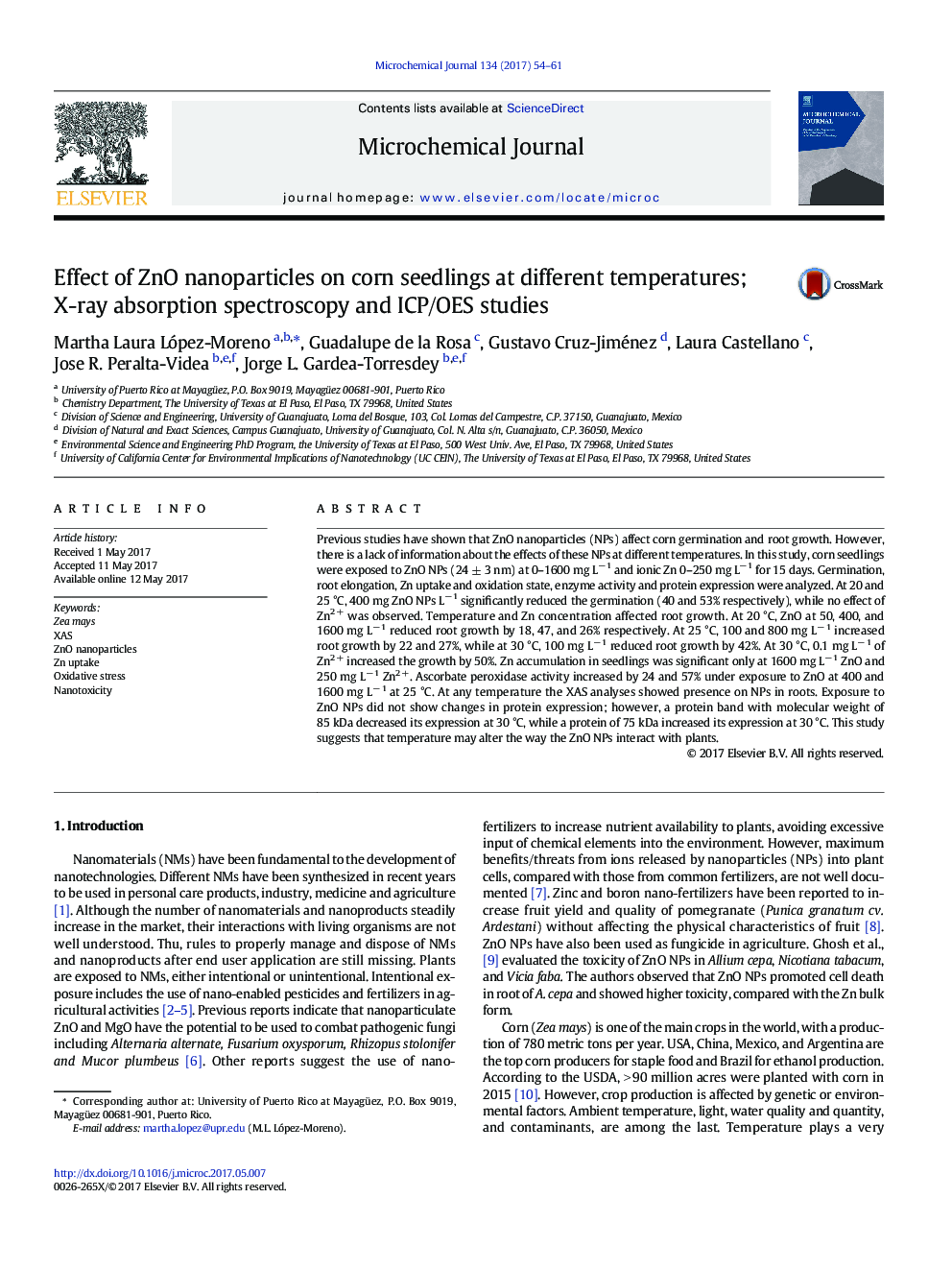| Article ID | Journal | Published Year | Pages | File Type |
|---|---|---|---|---|
| 5139098 | Microchemical Journal | 2017 | 8 Pages |
Abstract
Previous studies have shown that ZnO nanoparticles (NPs) affect corn germination and root growth. However, there is a lack of information about the effects of these NPs at different temperatures. In this study, corn seedlings were exposed to ZnO NPs (24 ± 3 nm) at 0-1600 mg Lâ 1 and ionic Zn 0-250 mg Lâ 1 for 15 days. Germination, root elongation, Zn uptake and oxidation state, enzyme activity and protein expression were analyzed. At 20 and 25 °C, 400 mg ZnO NPs Lâ 1 significantly reduced the germination (40 and 53% respectively), while no effect of Zn2 + was observed. Temperature and Zn concentration affected root growth. At 20 °C, ZnO at 50, 400, and 1600 mg Lâ 1 reduced root growth by 18, 47, and 26% respectively. At 25 °C, 100 and 800 mg Lâ 1 increased root growth by 22 and 27%, while at 30 °C, 100 mg Lâ 1 reduced root growth by 42%. At 30 °C, 0.1 mg Lâ 1 of Zn2 + increased the growth by 50%. Zn accumulation in seedlings was significant only at 1600 mg Lâ 1 ZnO and 250 mg Lâ 1 Zn2 +. Ascorbate peroxidase activity increased by 24 and 57% under exposure to ZnO at 400 and 1600 mg Lâ 1 at 25 °C. At any temperature the XAS analyses showed presence on NPs in roots. Exposure to ZnO NPs did not show changes in protein expression; however, a protein band with molecular weight of 85 kDa decreased its expression at 30 °C, while a protein of 75 kDa increased its expression at 30 °C. This study suggests that temperature may alter the way the ZnO NPs interact with plants.
Related Topics
Physical Sciences and Engineering
Chemistry
Analytical Chemistry
Authors
Martha Laura López-Moreno, Guadalupe de la Rosa, Gustavo Cruz-Jiménez, Laura Castellano, Jose R. Peralta-Videa, Jorge L. Gardea-Torresdey,
